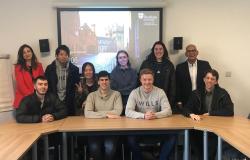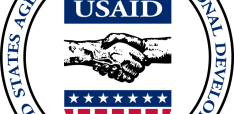International Development from a Practitioner’s Perspective - An Interview with Suresh Nanwani

Milan Varda and Sophie Nepali interview Global Policy’s Board Member Suresh Nanwani about the challenges and opportunities under the current regime of international development. Suresh also provides some valuable tips for those interested in a career in the field.
What does, in your opinion, the formation of the New Development Bank mean for the future of multilateral development banks?
In my view, the establishment of the New Development Bank (NDB) is a positive development – not only for multilateral development banks (MDBs) but for other development partners including bilateral and other agencies. I would also include the Asian Infrastructure Investment Bank (AIIB) when you mention the New Development Bank. I would consider the effect of the establishment of these two banks in the context of the international financial architecture of not just MDBs but the overall landscape of development lending by all institutions, including multilateral and bilateral. First, the establishment of these two banks demonstrates the outdated traditional and limited view of international financial architecture consisting of the World Bank (consisting of the International Bank for Reconstruction and Development (IBRD) and the International Development Association), and the four major regional development banks (one for each region – America, Africa, Asia and the Pacific, and Europe) and subregional development banks (such as the Caribbean Development Bank for the Caribbean nations). The four major regional development banks are Inter-American Development Bank, African Development Bank, Asian Development Bank, and European Bank for Reconstruction and Development. Second, MDBs cannot function simply on their own, and development lending is not in their exclusive domain. Third, there is an increasing need for other kinds of cofinanciers including national or international agencies or private sector. It is interesting that when AIIB and NDB were set up in 2016, there were fears that MDBs and these two banks could end up falling over each other in a scramble to find projects and that there may be a consequent drop in lending standards. However, these fears were unfounded. We are now in 2019, more than 3 years after the launching of these two banks, and lending by MDBs and other development partners has in fact increased over the years and there has been no lessening of lending standards! In fact, there have been tie-ups by way of collaboration and cofinancing by many development banks to participate in the same projects for development purposes and pooling of resources and importantly, sharing common positions by issuing joint statements on critical areas. One important joint statement was the December 2018 statement issued by nine MDBs including NDB and AIIB to have an aligned approach to the objectives of the Paris Agreement (Conference of Parties 21) and to work together to catalyze low-emissions and climate-resilient development work.
Some multilateral development banks (MDBs) have been under the scrutiny of developing countries due to the attached conditionalities of loans. As someone that has worked in MDBs, what is your take on the effectiveness of conditionalities when the loans are provided.
In development lending, conditionalities apply in cases of program loans for sectors such as energy or health while in project loans such as an infrastructure highway project, there would be covenants in the project loans on the execution and implementation of the project. Program lending is through the Development Policy Financing (DPF) of the World Bank and program loans in other MDBs where programs in sectors are provided with policy and institutional actions agreed upon between the borrowing country and the bank, and these agreements constitute loan conditionalities. The World Bank introduced conditionalities in policy-based lending since the 1980s and this has been adopted by other MDBs. There has been considerable debate on the impact of these loan conditionalities by academics, research institutes and advocacy civil society organizations (CSOs) who are critical of the imposition of these loan conditionalities and view them as infringement of state sovereignty in decision making through prescriptions made by the lending banks. At the same time, the World Bank and other MDBs have also carried out their own reviews of conditionality-based lending e.g. "Review of World Bank Conditionality: The Theory and Practice of Conditionality: A Literature Review (2005)". In this 2015 report, the World Bank found it moved strongly in the direction of programmatic lending and streamlining conditions, which had contributed to greater ownership. However, as recent as April 2019, Eurodad, an advocacy CSO, issued its study report "Flawed conditions: The impact of the World Bank's conditionality on developing countries" and recommended that the World Bank should review its DPF policy and "adopt a policy that fully respects democratic ownership, avoids promoting World Bank policy prescriptions and unequivocally ends the use of economic policy conditionality." As you can see, the long-standing debate on loan conditionalities continues! This healthy debate is good as it spurs discussion and directions ahead to move constructively forward in improved policy-based lending. What I see is that there are two sides of the coin – the lending banks and the recipient borrowing countries on one side, and the critics on the other side. In obtaining the program loan, recipient countries agree to the loan with the conditionalities attached, and they are free to decide whether they wish to agree to the loan with such conditionalities as they should not otherwise accept such loans. I think there is definitely room for improvement to ensure that continuing concerns on infringement on national sovereignty and undermining democratic processes and institutions in recipient countries are addressed in reviews by the World Bank and other MDBs in response to concerns raised on the use of such conditionalities. One way of doing this is to ensure engagement with critics in regular reviews by the MDBs. Additionally, MDBs can through their independent evaluation offices carry out evaluation studies on the effectiveness of their policy-based lending instruments.
Having had over 28 years of international development experience in project operations, what do you consider as your biggest project achievement and why?
Wow, this is a tough question to ask over a 28-year international development experience! Hmm.... My answer would be the Technical Assistance project in Maldives on Strengthening Legal Education and Judicial Training by the Asian Development Bank (ADB) as my "biggest project achievement" for several reasons. First, I found it challenging to design and implement this project over a period of six years as I had to also manage other work in addition to this project. Second, the project required lots of attention to detail to ensure smooth project implementation and it was not easy to set up curriculum development for a fledgling law school – the first for the country – and also ensure a cadre of key staff who would manage and run the law school. Third, judicial benchbooks were developed for the first time for use by the judges in Malé (the capital) and by the island magistrates (in the atolls) to administer justice. Fourth, and in my view most significant, before the project started, Maldives had just 3 female practicing lawyers in the country, but in 2006, there were 82 female lawyers registered in the country and many were working in the private sector or with the government! Also, some female students managed to gain entry and study at the International Islamic University Malaysia to complete a LLB degree course after obtaining an advanced diploma shariah and law course at the law school in Maldives through a twinning arrangement with this university arranged under this project. Through this arrangement, there were at least 3 female students who ended up studying for a LLM degree course overseas in Malaysia, Malta, and USA. The project enabled female empowerment and I find that very rewarding. I remember fondly this project – the government counterparts (ministry of justice, ministry of education, attorney-general's office, and the judiciary) worked well, there was buy-in from the local lawyers who also helped the law school by teaching Maldivian legal system to the new students, and the hard work of the consultants in producing concrete results. I still recollect what one female law graduate told me at the graduation when I was in the country for a project review mission – that she was so glad of the new law school as it gave her an opportunity to become a lawyer as it would have otherwise been very difficult for her to realize her dream to become a lawyer (the only route was to get an overseas scholarship grant which would have been very difficult to obtain). I must add I myself learnt a lot from this project – to be patient as there is no quick recipe for success as it takes time for results to be achieved: there has to be country ownership and people are part of the process of the ownership, and the results of the project proved that all the efforts taken were worth it.
If you could give any advice to students wanting to pursue a career in international development, what would it be?
I have been already approached on this matter by some of your colleagues in the School of Government and International Studies at Durham University when I was teaching there in February 2019, and I am happy to give my advice to a wider audience. There are many options, and it all depends what kind of career advice in international development that is sought. Students should be free to approach their career counselling offices in their schools as that would give them overall direction in career planning. On my part, I think it is important what the student wishes to achieve in pursuing a career in international development bearing in mind the time available and their specific interests. I advise students to take a holistic view of international development – they are very young and indeed the leaders of the future and what is done now will lay the seeds for growth for them and the world. I would suggest students consider being an intern or a volunteer in an advocacy civil society organization (CSO) such as Bretton Woods Project (UK) or in a research institute such as Overseas Development Institute (ODI), UK. I specifically mention UK institutions if local institutions are what students have in mind, but there are lots of other institutions worldwide such as Oxfam Australia, an advocacy CSO, World Resources Institute in USA (a research institute), or Bank Information Center, an advocacy CSO based in USA which operates in five regions – Africa, Asia, Europe and Central America, Latin America and the Middle East and North Africa. It depends on these institutions whether their internships are paid or not, so it is best to check with them. Opportunities abound working with them as interns or volunteers to do advocacy work, research or other projects and students are given alternative views of international development seen from different perspectives – government, civil society, private sector, etc.
Also, students can approach various MDBs and governments to consider internships, Young Professional programs, or related work opportunities to have hands-on experience working. I highlight two examples: the World Bank at http://www.worldbank.org/en/about/careers/programs-and-internships for Young Professionals Program and Internship Program, and the Asian Development Bank at https://www.adb.org/site/careers/internship-program and https://www.adb.org/site/careers/adb-young-professionals-program. Other MDBs such as European Bank for Reconstruction and Development also offer opportunities.
The opportunities presented by MDBs, advocacy CSOs, and research institutes are many and are there for students to consider if they wish to pursue a career in international development. I wish students all the best in pursuing such careers in international development – it is enjoyable work, passion for development is important, and the results are very rewarding.
Suresh Nanwani is our practitioner’s board member. He is teaching on various universities in United Kingdom, Japan, Australia, Singapore and South Africa. Recently, he was appointed a Professor in Practice at Durham University, School of Government and International Affairs. He has vast experience in the field of international development, and he has worked with various Multilateral Development Banks including the Asian Development Bank, the World Bank and European Bank for Reconstruction and Development.
This interview was conducted by Milan Varda and Sophie Nepali. Milan is intern at Global Policy Journal and student of MSc Global Politics in Durham University. He has BA in International Relations from Faculty of Political Sciences, University of Belgrade, Serbia. He was also an intern at International Organization for Migration and in the United Nations Department of the Ministry of Foreign Affairs of the Republic of Serbia. Sophie Nepali is intern at Global Policy Journal. She is currently student of MSc Global Politics at Durham University. She also holds MA in Economics and International Relations from the University of Dundee. Previously, she was a volunteer at Maiti Nepal.


